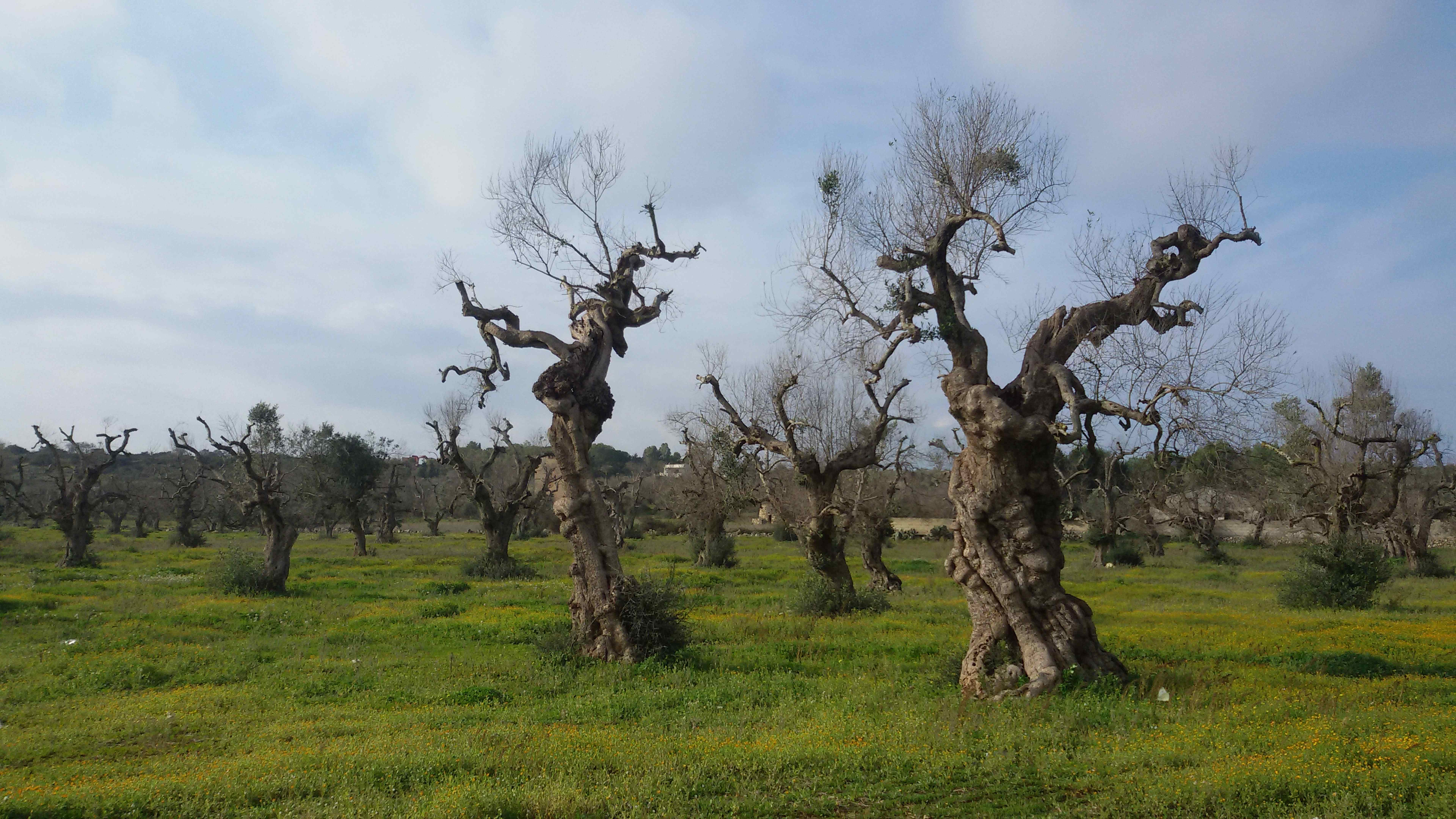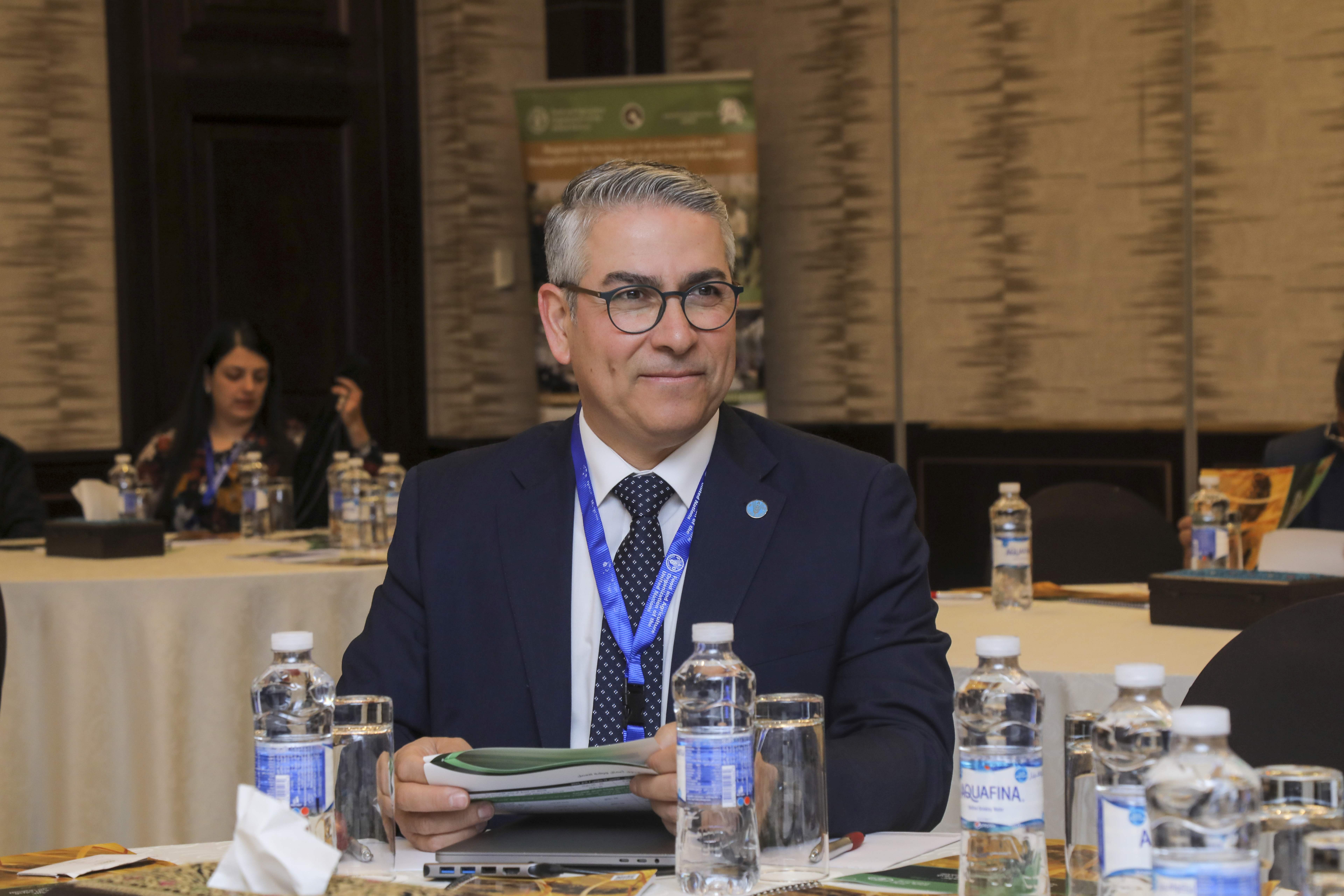Technical Expertise
Urgent need for a Regional Strategy for Sustainable Management of Transboundary Plant Pests and Diseases (TPPDs) in the Near East and North Africa

The Near East and North Africa (NENA) region is challenged by the continuous threat of transboundary plant pests and diseases, the introduction and spread of which is facilitated by increased trade activities, movement of people, plants, and animals, growing conflicts and crises in the region and lack of effective and coordinated phytosanitary control measures. Pests and diseases cause heavy annual losses in agricul- tural production, estimated at 25 to 40 percent of the global production, with a considerable negative economic impact. In addition, the effects of climate change on the increased spread of transboundary pests and diseases cannot be ignored. Although agri-food exports of NENA countries are the second main non-oil commodity, which could potentially increase three to four times, intra-regional exports of goods between NENA countries are less than 8 percent of their total exports. However, NENA countries have significantly reduced the tariffs in the past decade, but reports suggest that reforming regulatory frameworks can lead to a two- to three-fold increase in intra-regional trade than from tariff reductions alone.
Plant pests and diseases threaten food security and nutrition worldwide and in the NENA region, par- ticularly with severe economic and environmental consequences. Most of these transboundary dis- eases are not curable in the field and are transmitted by propagating plant material. The weakness of quarantine systems, the absence of adequate surveillance and early warning systems, and the lack of harmonised production systems of certified propagation materials and appropriate diagnostic proto- cols all contribute to a significant increase in the risk of introducing and spreading transboundary plant pests and diseases in NENA countries. Therefore, prevention remains the most effective strategy. Some emerging plant pests and diseases with a significant economic impact in the NENA region are briefly described below, some of which have already been signalled in some countries, others representing an imminent threat in the region.
Countries in the NENA region face significant challenges and implement a wide range of measures to combat TPPDs. However, insufficient national capacities and the lack of proper regional cooperation pro- grammes increase these problems by limiting the capacity of surveillance, border controls and inspection, risk assessments, accurate diagnosis, and effective and timely response.
It is challenging for one country to adequately address the problems created by certain transboundary plant pests and diseases. Although the NENA contracting parties to the IPPC have established the Near East Plant Protection Organization (NEPPO) since 2009, the support of the member countries is still needed to fulfil its coordinating role. Therefore, regional cooperation among NENA countries is strategic and essential to cre- ating synergies to analyse threats, exchange knowledge, and useful information, and coordinate response actions with harmonised standards.
The following pillars and practical actions need to be promoted as a regional programme:
Coordination and Knowledge Sharing
By establishing a Regional Committee for the Sustainable Management of Transboundary Plant Pests and Diseases (RCTPD) to coordinate and supervise FOUR regional panels:
- Panel on TPPDs detection and surveillance
- Panel on sustainable management of TPPDs
- Panel on the phytosanitary standards following the IPPC International Standards for Phytosanitary Measures (ISPMs)
- Panel on certified plant propagation materials
- Regional phytosanitary academy
Capacity building in the following fields
- Surveillance, Monitoring & Early Warning Systems for TPPDs
- Developing Appropriate Quarantine Measures
- Harmonized Production Systems for Certified Plant Propagation Materials
- Harmonised registration systems for pesticides
Environmental, economic, and social Assessment
Assessing the risks and impacts that TPPDs could cause at three levels:
- Economic Impact
- Environmental Impact
- Social Impact
TPPDs still threaten food security and safety in the NENA region; prevention is the only method to reduce the spread of those pests and diseases. Production of healthy plants and sustainable food in the NENA region requires specific and smart solutions. In addition, appropriate policies and legislation, intelligent investments, and planning are all key factors in ensuring higher efficiency levels and prompt responses to threats to food systems. Regional collaboration by supporting the role of NEPPO is essential to prevent the introduction and spread of destructive plant pests and diseases. Ensuring higher levels of efficiency, early warning, and reaction to threats to food systems requires regional collaboration. NENA countries are not adequately prepared to respond effectively to new and re-emerging transboundary plant pests and diseases.
Activities of prevention, early warning, control and eradication, and containment are not conducted to the fullest extent possible. The human resources and logistical capabilities of NENA countries are gener- ally not at a level sufficient to face large and urgent plant health threats.
On this occasion, we urge NENA countries and plant protection experts to support establishing a regional programme to face transboundary plant pests and diseases in the NENA region.
 | Dr. Thaer Yaseen: Since 2017, responsible for guiding FAO's response to regional and national priorities for food security, Pest and Pesticide management, agriculture and rural development through the identification, planning and implementation of FAO's priority activities in NENA region. Lead the regional and national dialogue with high level authority and planning for the need and implementation of NENA counties for sustainable management and development in food safety and security focusing on plant health and plant production. Lead seed management and genetic resource conservation, as well as, the regional strategy to control Transboundary Plant Pests and Diseases. At the same time, he works for the implementation process of innovative monitoring, early warning, forecasting, rapid response for plant pest and disease. Plan and lead the implementation process of national and regional communication and capacity development to promote sustainable and environmentally sound management and control techniques. |
